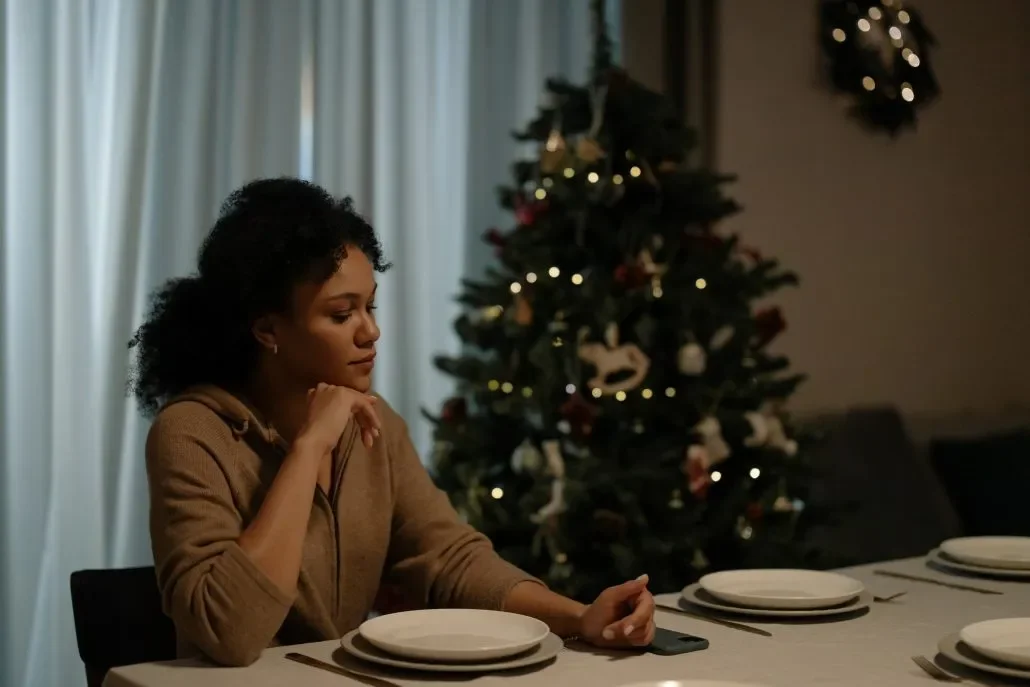Family Therapy Before the Holidays—Rewriting the Script This Season
The holidays have a way of stirring everything up—not just the good memories, but the painful patterns, too. You might feel it before you even walk through the door: that old tension rising in your chest, the subtle dread of familiar dynamics.
In Philly and along the Main Line, the season can magnify this mix of closeness and discomfort.
Maybe you’re coming home to a rowhouse filled with the same arguments that have echoed for years.
Or maybe you’re driving down Montgomery Avenue, wondering how to stay grounded through another round of expectations and emotional landmines.
Every year you might promise yourself, This time will be different. But somehow, by the end of the gathering, you’re drained—not just from the noise or the pace, but from the quiet emotional labor of holding it all together. You leave wondering why the smallest comments cut so deep, or why certain family roles still feel impossible to step out of.
If that sounds familiar, you’re not alone. Family therapy—offered in our Philadelphia and Bryn Mawr offices, or virtually across Pennsylvania—can help you begin to rewrite the script before the season starts. Together, we can look at the parts of you that show up at the table, understand the patterns you’ve been carrying, and create new ways to connect that feel authentic and steady.
Why Family Patterns Feel Louder During the Holidays
The holidays have a way of pulling us back into old versions of ourselves. The moment we step into a familiar home—the kitchen that still smells the same, the tone of voice that hasn’t changed in years—something in us reverts.
The peacemaker instinctively smooths things over. The caretaker starts scanning for who needs what. The quiet one stays silent, even when there’s so much they’d like to say.
These patterns didn’t appear out of nowhere. They were learned, practiced, and reinforced—small survival strategies that once helped us feel loved, included, or at least not rejected. Even when we’ve built new boundaries or done deep personal work, our nervous systems remember the old choreography. The holidays simply cue the music.
In our Philadelphia and Main Line therapy offices, we often see clients notice a subtle shift around this time of year. It might start as tension in the body before a visit home, or guilt for wanting space from family. Others describe people-pleasing that feels automatic, or irritation that flares faster than usual. It’s not that you’re “backsliding.” It’s that your body remembers the rules that once kept the peace, even if those rules cost you your authenticity.
When you start to see your reactions not as failures but as signals, something softens. You can pause before responding, tend to the part of you that’s bracing for conflict, and gently remind yourself: I don’t have to keep playing this role. With awareness and support from family therapy you can begin to relate differently, creating moments of connection that feel more real and less rehearsed.
How Family Therapy Helps Before the Holidays
Family therapy isn’t about fixing anyone. It’s about understanding the system you’re part of—the emotional choreography that’s been playing out for generations.
Every family develops its own rhythm—who speaks, who stays quiet, who smooths things over, who storms out.
These roles form early, long before we had the words to describe them. And until someone chooses to move differently, the dance keeps repeating.
In sessions at Spilove Psychotherapy, we gently untangle that choreography. Family & Relationship therapy becomes a space to slow things down and notice what’s happening beneath the surface. Together, we:
Help you recognize inherited patterns—not with blame, but with curiosity—and connect them to the emotions and needs they once protected.
Support you in developing language for repair instead of silence or shutdown, learning how to express hurt without shame or defense.
Practice nervous system regulation skills so you can stay grounded during high-stress interactions—whether you’re at the dinner table or on the phone.
Sometimes the whole family is present in the room; sometimes, it’s just you doing the work. Either way, the system starts to shift. When one person begins to move differently—to speak more honestly, to soften instead of collapse, to set a limit without guilt—it changes the entire emotional current.
Through Family & Relationship Therapy in Philadelphia or Bryn Mawr, we help you understand your part in the pattern and reclaim the freedom to choose something new. Because sometimes, changing your part really does change the whole story.
When Generational Trauma Meets Holiday Stress
Every family carries stories, some spoken, some stored in the body. Over time, these stories become patterns: control, avoidance, emotional suppression, perfectionism. What began as survival often gets passed down as “the way things are.” Generational trauma isn’t always loud or obvious; sometimes, it’s simply the silence around what was never healed.
In therapy, we often see how these inherited patterns surface most vividly during the holidays. You might notice it in:
The family dinner where no one talks about grief because that kind of vulnerability was never modeled.
The sibling tension that echoes the same fights your parents used to have.
The guilt or panic that rises when you try to take space even though your adult self knows it’s needed.
These aren’t signs that something is wrong with you. They’re signals from your nervous system, reminders of how your lineage learned to stay safe. And the beautiful part? Once you can see those patterns clearly, you can begin to choose differently.
At Spilove Psychotherapy, with offices in Philadelphia and Bryn Mawr, we use EMDR Therapy and Parts Work to help clients gently access and heal these deeper layers. You’re not just addressing what’s happening this holiday season, you’re tending to what’s been carried for generations. It’s not about blame; it’s about reclaiming choice—the choice to pause, to respond instead of react, and to live in alignment with who you are now, not who you had to be then.
What Sessions Might Look Like
At Spilove Psychotherapy, family therapy is both relational and deeply trauma-informed. We start by mapping the family system—tracing where connection breaks down, where boundaries blur, and where silence tends to settle in. Together, we bring awareness to the unspoken rules that shape how each person shows up.
From there, therapy often moves inward. Using approaches like EMDR Therapy, Somatic therapy, or Internal Family Systems (IFS), we work with your inner family—the younger parts of you who still brace for conflict or long for safety. When these parts feel seen and supported, you can show up to family interactions with more steadiness and compassion.
For families navigating grief or trauma, Ketamine-Assisted Psychotherapy (KAP) may also be integrated. This experiential work can help access insight and compassion where words alone have reached their limits.
Whether you come as a full family or on your own, the work is systemic—every shift ripples outward.
The Impact of Repair
When one person in a family begins to heal, something subtle but powerful shifts. The air feels different. There’s a pause where reactivity used to live. A breath where defensiveness once rose. Repair doesn’t erase what’s happened, it makes room for what’s possible.
Therapy invites families to hold pain with more maturity, grace, and presence. Over time, communication becomes less about proving a point and more about understanding what’s underneath. The same conversations that once spiraled into conflict can start to open space for honesty, softness, and even laughter again.
This is how transformation begins—not by pretending things are fine, but by tending to what’s real.
How to Begin Family Therapy in Philadelphia or Bryn Mawr
If the holidays already feel heavy—if you’re anticipating old dynamics or wishing things could feel different—this is the right time to reach out. You don’t have to wait until the tension peaks or the season passes to start healing what’s fraying.
Family & Relationship Therapy at Spilove Psychotherapy can help you move from old scripts to new conversations—ones rooted in understanding, compassion, and genuine connection. Sessions are available in Philadelphia, Bryn Mawr, and virtually throughout Pennsylvania and New Jersey.
Your story doesn’t have to keep repeating. It can evolve. And it starts with one small, courageous choice: to begin.
Book a consultation to meet our team and find the right therapist for your family.
FAQs
How can family therapy help before the holidays?
Therapy helps families identify patterns and emotional triggers that surface during gatherings. It offers tools for communication, boundaries, and repair—so you can enter the season grounded rather than reactive.
Do all family members need to attend sessions?
Not always. Sometimes therapy starts with one person shifting their approach, which can ripple through the entire system. You can begin individually and invite others later.
Can EMDR be part of family therapy?
Yes. EMDR Therapy helps family members process memories that keep old conflicts alive. It supports nervous system regulation and emotional safety within relationships.
Is family therapy available virtually?
Absolutely! We offer virtual therapy across Pennsylvania, including Philadelphia and Bryn Mawr clients, so your family can connect from wherever you are.
How do I start?
Visit our Contact page to schedule a consultation. We’ll match you with a therapist who specializes in family systems and relational repair.



